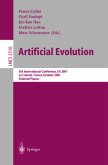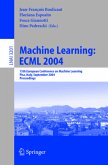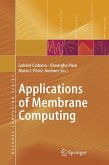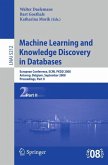This book constitutes the thoroughly refereed post-proceedings of the First International Workshop on Biologically Inspired Approaches to Advanced Information Technology, BioADIT 2004, held in Lausanne, Switzerland in January 2004.
The 36 full papers presented together with an introductory overview have gone through two rounds of reviewing and revision; they were selected and are arranged in a way ensuring systematic coverage of important bio-inspired approaches in computing. The papers are organized in sections on biosystems for IT evolution, bio-inspired software systems, hardware systems, robotics, bio-inspired distributed and parallel processing, bio-inspired networking, image processing, and other topics.
The evolution of the Internet has led us to the new era of the information infrastructure. As the information systems operating on the Internet are getting larger and more complicated, it is clear that the traditional approaches based on centralized mechanisms are no longer meaningful. One typical example can be found in the recent growing interest in a P2P (peer-to-peer) computing paradigm. It is quite different from the Web-based client-server systems, which adopt essentially centralized management mechanisms. The P2P computing environment has the potential to overcome bottlenecks in Web computing paradigm, but it introduces another difficulty, a scalability problem in terms of information found, if we use a brute-force flooding mechanism. As such, conventional information systems have been designed in a centralized fashion. As the Internet is deployed on a world scale, however, the information systems have been growing, and it becomes more and more difficult to ensure fau- free operation. This has long been a fundamental research topic in the field. A complex information system is becoming more than we can manage. For these reasons, there has recently been a significant increase in interest in biologically inspired approaches to designing future information systems that can be managed efficiently and correctly.
The 36 full papers presented together with an introductory overview have gone through two rounds of reviewing and revision; they were selected and are arranged in a way ensuring systematic coverage of important bio-inspired approaches in computing. The papers are organized in sections on biosystems for IT evolution, bio-inspired software systems, hardware systems, robotics, bio-inspired distributed and parallel processing, bio-inspired networking, image processing, and other topics.
The evolution of the Internet has led us to the new era of the information infrastructure. As the information systems operating on the Internet are getting larger and more complicated, it is clear that the traditional approaches based on centralized mechanisms are no longer meaningful. One typical example can be found in the recent growing interest in a P2P (peer-to-peer) computing paradigm. It is quite different from the Web-based client-server systems, which adopt essentially centralized management mechanisms. The P2P computing environment has the potential to overcome bottlenecks in Web computing paradigm, but it introduces another difficulty, a scalability problem in terms of information found, if we use a brute-force flooding mechanism. As such, conventional information systems have been designed in a centralized fashion. As the Internet is deployed on a world scale, however, the information systems have been growing, and it becomes more and more difficult to ensure fau- free operation. This has long been a fundamental research topic in the field. A complex information system is becoming more than we can manage. For these reasons, there has recently been a significant increase in interest in biologically inspired approaches to designing future information systems that can be managed efficiently and correctly.








